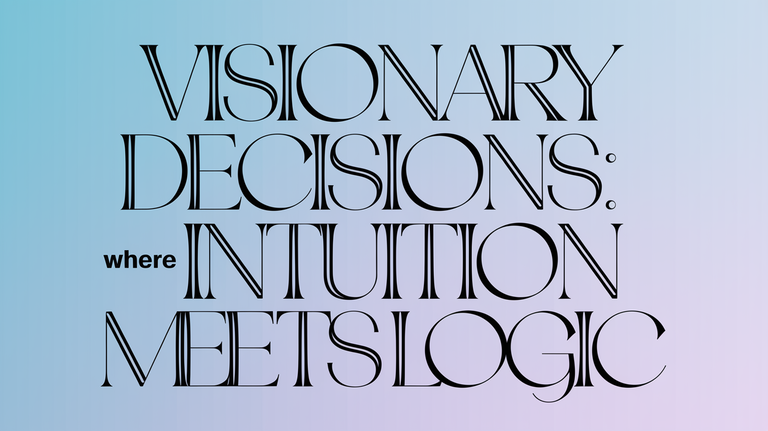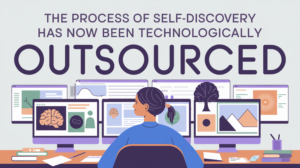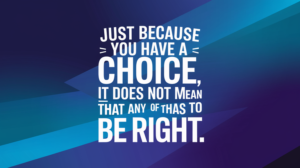Introduction
Decision-making, a cornerstone of human existence, shapes our personal lives, professional trajectories, and societal landscapes. Some decisions are routine, made almost unconsciously based on ingrained habits or established protocols. Yet, there are those decisions that stand apart – visionary decisions that chart new territories, redefine possibilities, and leave an enduring mark on the world. These are not borne of mere logic or blind intuition; they arise at the confluence of both, where the analytical prowess of the mind harmonizes with the subtle whispers of the heart.
The Essence of Intuition
Intuition, often described as a “gut feeling” or an inner knowing, is a complex and often elusive phenomenon. It’s a rapid cognitive process that draws upon our accumulated experiences, subconscious observations, and deeply held values, bypassing the need for conscious deliberation. Intuition isn’t about irrationality; it’s about accessing a wealth of knowledge stored beneath the surface of our conscious awareness.
In the realm of visionary decision-making, intuition serves as a compass, guiding us towards innovative solutions and uncharted paths. It allows us to sense opportunities that might not be readily apparent through logical analysis alone. Visionaries, from artists and entrepreneurs to scientists and social reformers, often tap into their intuition to anticipate future trends, identify unmet needs, and forge connections between seemingly disparate ideas.
The Power of Logic
Logic, with its emphasis on reason, analysis, and evidence-based conclusions, provides the bedrock upon which sound decisions are built. It enables us to evaluate different options, assess potential risks and rewards, and develop strategies to achieve our goals. Logic helps us navigate complexities, break down problems into manageable components, and identify patterns that might not be immediately discernible.
In the context of visionary decision-making, logic serves as the anchor that grounds our intuitive insights in reality. It allows us to test the feasibility of our ideas, assess their potential impact, and develop plans to implement them effectively. Without the tempering influence of logic, intuition can lead us astray, into the realm of wishful thinking and unrealistic expectations.
The Synergy of Intuition and Logic
Visionary decision-making thrives at the intersection of intuition and logic. It’s a dynamic dance between the two, where each complements and strengthens the other. Intuition provides the spark, the initial idea or vision that sets the creative process in motion. Logic then steps in, providing the structure and rigor needed to refine, develop, and execute that vision.
This synergy is perhaps best exemplified in the field of scientific discovery. Scientists often rely on intuition to formulate hypotheses, make leaps of imagination, and identify potential avenues of research. But it’s the rigorous application of the scientific method – the epitome of logical inquiry – that allows those hypotheses to be tested, refined, and ultimately transformed into knowledge that benefits humanity.
Cultivating Visionary Decision-Making
Visionary decision-making isn’t a skill reserved for a select few; it’s something we can all cultivate and develop. It requires a willingness to embrace both the intuitive and the logical aspects of our minds, to trust our gut feelings while also subjecting them to critical scrutiny.
One way to foster this synergy is to create space for quiet reflection and introspection. In our fast-paced, information-saturated world, it’s easy to become overwhelmed and lose touch with our inner wisdom. Taking time to disconnect, meditate, or simply engage in activities that allow our minds to wander can open up channels for intuitive insights to emerge.
Another key is to cultivate a curious and open mind. Visionaries are lifelong learners, constantly seeking out new experiences, perspectives, and information. They’re not afraid to challenge conventional wisdom, question assumptions, and explore unconventional approaches. This intellectual flexibility allows them to make connections that others might miss and to envision possibilities that lie beyond the boundaries of the status quo.
The Role of Visionary Decision-Making in Today’s World
In a world grappling with complex challenges such as climate change, social inequality, and technological disruption, the need for visionary decision-making has never been greater. We need leaders who can see beyond the immediate horizon, anticipate future trends, and develop innovative solutions. That address the root causes of these problems, not just their symptoms.
Visionary decision-making isn’t just about solving problems; it’s also about creating a better future. It’s about imagining what’s possible and then working tirelessly to make that vision a reality. Whether it’s in the realm of science, business, the arts, or social activism, those who can harness the power of both intuition and logic have the potential to make a profound and lasting impact on the world.
Conclusion
Visionary decision-making, born at the intersection of intuition and logic, is a powerful force for positive change. It’s the driving force behind innovation, progress, and the realization of human potential. By cultivating our intuitive faculties, honing our logical reasoning skills, and learning to integrate the two, we can all become more effective decision-makers. Capable of charting new paths, overcoming challenges, and shaping a brighter future for ourselves and the world around us.







